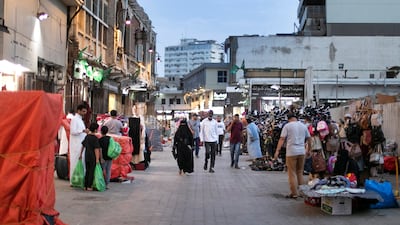Saudi Arabia's annual inflation rate fell slightly to 2.7 per cent last month, from 2.8 per cent in May, according to official data.
Prices for housing, water, electricity, gas and other fuels increased by 9.1 per cent overall in June from a year earlier, the kingdom’s General Authority for Statistics data showed on Sunday.
Restaurant and hotel prices rose by 4.3 per cent and education by 3 per cent, while prices for clothing and shoes fell by 2.9 per cent, the data showed.
Communication costs fell by 0.7 per cent last month, and miscellaneous personal goods and services by 0.1 per cent.
Inflation in Saudi Arabia, the Arab world's largest economy, has been declining steadily since starting at a rate of 3.4 per cent in January.
The US Federal Reserve increased its benchmark rate for the 10th consecutive time in May to bring inflation down to its target range of 2 per cent after prices hit a four-decade high of 9.1 per cent in June of last year.
It has raised rates aggressively by a combined 500 basis points over the past 16 months, their highest since 2007, shortly before the start of the 2008 global financial crisis.
Earlier this month, the Fed hit pause on raising interest rates for the first time since it started its monetary tightening cycle in March 2022, to assess the effect on the economy. However, it signalled it would resume raising rates again this year if needed. Its next meeting will be held on July 25 and 26.
Most central banks in the six-member GCC bloc follow the Fed's policy rate moves due to their currencies being pegged to the US dollar, except for Kuwait, which links its dinar to a basket of currencies.
Business activity in Saudi Arabia’s non-oil private sector economy remained robust in June as output and new business continued to expand, further supporting employment growth in the kingdom in the second quarter.
The reading for Saudi Arabia on the Riyad Bank purchasing managers' index rose to 59.6 in June, from 58.5 in May, well above the neutral 50-point mark that separates growth from contraction.
Output in the kingdom rose at the steepest rate since March 2015, while sales growth was the strongest in about nine years.
Last year, Saudi Arabia had the highest annual growth rate among the world’s 20 biggest economies after its gross domestic product expanded 8.7 per cent on higher oil revenue and a robust non-oil private sector.
The International Monetary Fund expects the kingdom's overall real GDP growth to slow to 2.1 per cent in 2023. The World Bank has estimated growth at 2.2 per cent.










